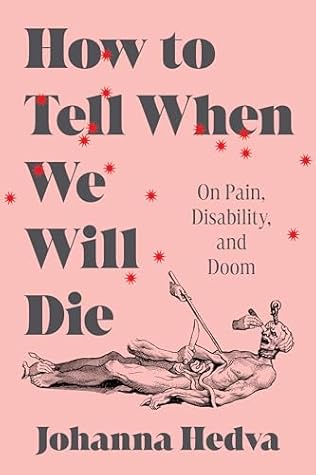More on this book
Community
Kindle Notes & Highlights
Read between
January 10 - January 26, 2025
Some might assume that the great tragedy of my life is my illness. But in my opinion, the far greater tragedy is that I can, for whatever reason, write about it pretty well.
Feeling like a queen for a disabled person is often a feeling produced by much less aristocratic conditions—it’s simply the feeling of having everything that we need. Of assuring that conditions won’t impair our bodies more than they already are.
It’s easy to make one’s peace with god in a place like this, I think. I guess that’s why god made places like this, so that we might forgive him.
that shift from having what I need, to dreaming about what I might want.
Some of the most destabilizing encounters I’ve had with ableism have been seeing it in other disabled people. They hold on to a fantasy of healing and then hate themselves when it fails to arrive for them.
When looking for death in a chart, many things must be present at the same time. It’s not one transit or one planet or one thing at all—it’s usually closer to a dozen things that have been building for a while, which then all converge at the same time.
William James said, “My first act of free will shall be to believe in free will.”
For disabled people to imagine ourselves growing old requires an almost delusional amount of belief, a trust of the future often in opposition to the prophecy of our current moment.
Thank you to those who’ve trolled me online—I find having enemies so helpfully clarifying.


